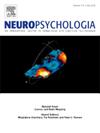No support for an effect of a daytime nap on the consolidation or generalization of fear learning
IF 2
3区 心理学
Q3 BEHAVIORAL SCIENCES
引用次数: 0
Abstract
This study examined the role of a daytime nap in the consolidation and generalization of fear learning. 31 healthy, young adult participants (16 in the wake group and 15 in the sleep group) underwent a fear acquisition procedure in which the conditioned stimulus (CS+), a composite image consisting of a geometrical figure imposed on a background, was repeatedly paired with a mild electric shock. The safety stimulus (CS-), another geometrical figure imposed on another background, was never paired with the shock. After a delay interval containing either a 2-h nap opportunity or an equivalent amount of time spent awake, participants performed a fear memory and generalization test. Here, participants viewed four different stimuli: the CS+ and CS- seen before, as well as two novel stimuli composed of the same two geometrical figures seen before imposed on novel background images. This design allowed us to examine a) whether sleep consolidates the original fear memory and b) whether sleep affects the degree of generalization of fear learning to the original fear-eliciting geometrical figure presented on a novel background image. Results revealed no group differences for either the consolidation or generalization of fear learning in any of our outcome measures (skin conductance responses, subjective ratings of unpleasantness, retrospective shock expectancy ratings, or explicit memory performance). This study adds to the body of work showing mixed findings on the effect of sleep on consolidation and generalization of fear learning, in which there is currently limited evidence for sleep having an effect in either direction.
没有证据支持白天小睡对恐惧学习的巩固或概括的影响。
这项研究考察了白天小睡在巩固和概括恐惧学习中的作用。31名健康的年轻成人参与者(醒着组16名,睡眠组15名)接受了一个恐惧获得程序,在这个程序中,条件刺激(CS+),一个由强加在背景上的几何图形组成的合成图像,反复与轻度电击配对。安全刺激(CS-)是另一个背景上的几何图形,从未与电击配对。在一个包含两个小时小睡机会或同等醒着时间的延迟间隔后,参与者进行了恐惧记忆和泛化测试。在这里,参与者观看了四种不同的刺激:之前看到的CS+和CS-,以及两种新的刺激,由之前看到的相同的两个几何图形组成,施加在新的背景图像上。这个设计允许我们检验a)睡眠是否巩固了原始的恐惧记忆,b)睡眠是否影响恐惧学习对新背景图像上原始恐惧几何图形的泛化程度。结果显示,在我们的任何结果测量(皮肤电导反应、不愉快的主观评分、休克预期评分或外显记忆表现)中,恐惧学习的巩固或概括都没有组间差异。这项研究增加了关于睡眠对恐惧学习的巩固和概括的影响的研究成果,目前没有证据表明睡眠对任何一个方向都有影响。
本文章由计算机程序翻译,如有差异,请以英文原文为准。
求助全文
约1分钟内获得全文
求助全文
来源期刊

Neuropsychologia
医学-行为科学
CiteScore
5.10
自引率
3.80%
发文量
228
审稿时长
4 months
期刊介绍:
Neuropsychologia is an international interdisciplinary journal devoted to experimental and theoretical contributions that advance understanding of human cognition and behavior from a neuroscience perspective. The journal will consider for publication studies that link brain function with cognitive processes, including attention and awareness, action and motor control, executive functions and cognitive control, memory, language, and emotion and social cognition.
 求助内容:
求助内容: 应助结果提醒方式:
应助结果提醒方式:


